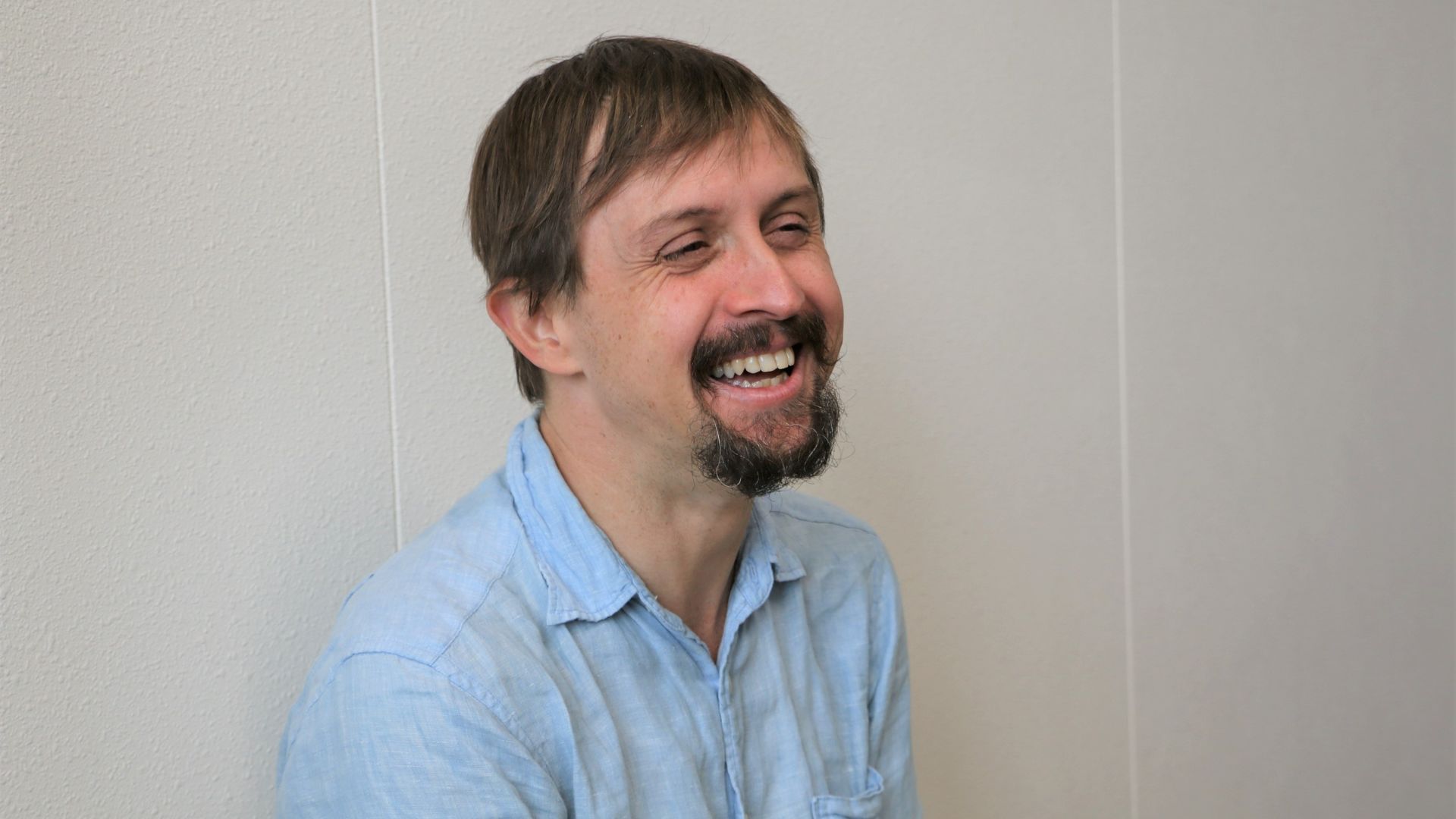
Scholar Creator: Academic knowledge informs creative works
Prof Britton Brooks experiences have informed the trajectory of his research: the realization that everything is interconnected
From his office in one of the Languages and Humanities buildings, Assistant Professor Britton Brooks has a spectacular view of the Ito Campus. The contents of his office are a window into his mind and interests: broad-ranging, and mesmerizing, which include souvenirs from his visits to conferences around the world, as well as his academic career spanning the islands of Hawaiʻi, the UK, and Japan.
Prof Brooks specializes in Old English and Anglo-Latin Literature, Literature and the Environment, Sound Studies, and the Blue Humanities, which concerns people’s relationship with the ocean, and his experiences have informed the trajectory of his research: the increasing realization that everything is interconnected. As much as we would like to specialize because our brains are only so big and we only have so much time, we also need to be aware of the bigger picture and the way in which everything is interconnected.
“When studying medieval texts, I need to know the language, the history, the culture, even things like what did they actually eat? For example, when the text talks about a fish in the story, did they actually eat that fish? If they caught it, what was the economic value of it? This would all influence how they conceptualized that fish.”
Based on this realization, he is exploring topics ranging from early medieval soundscapes to how humans could live in space in work that goes beyond just academic papers to broader media including novels and video games.
Crossing disciplines to ponder the human challenges of space
“People like Elon Musk say we should live on Mars, and NASA announced that in the 2030s they will establish a moon base camp. These topics are predominantly scientific, but they are focused on humans that will be living together in extraordinary circumstances, so all the joys and problems of being human will have to be considered with it.”
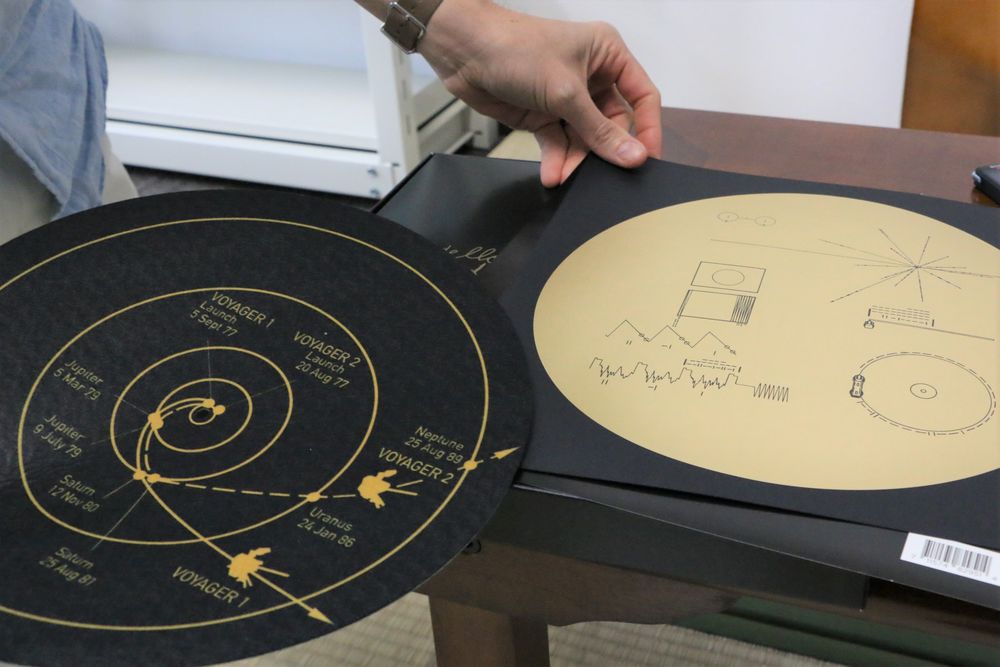
Prof Britton Brooks started the interdisciplinary workshop Converging Epistemologies with the realization that when trying to study anything, one needs the expertise of as many people as possible. However, in academic terms, it is rare for scholars from different disciplines to converse with each other, let alone with those outside the ivory towers of universities. The reality is, however, that all fields are connected, and it is unfortunate how many great discussions take place, and how few hear them. Academics are very good at talking to others in their fields of expertise, but often have a difficult time expressing their ideas to non-experts.
Therefore, Prof Brooks curated panelists for Converging Epistemologies to include a physicist that works with CERN and NASA, an astrobiologist that explores long-duration space exploration simulations, a historian for offering different ways of thinking about the human condition, as well as the principal investigator on the NASA team that discovered ‘Oumuamua,’ the first confirmed interstellar object ever detected.
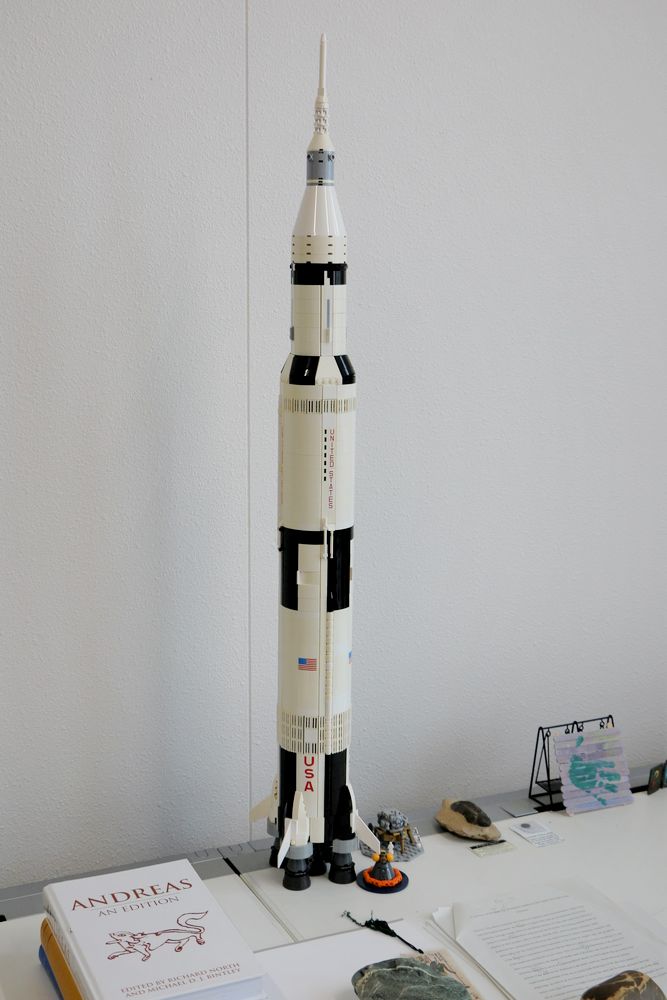
Prof Brooks posed questions to the panel, about what it would be like if people were born inside a dome and all they ever heard was the sound of the machines and people stirring. How does that change human behavior and development? Many science fiction writers have explored similar themes in their works of fiction, and Prof Brooks was curious to know what a group of scholars would say. Video of the ensuing discussions is available online.
Education and career path
Ito Campus is a short distance away from several beautiful beaches. Prof Britton Brooks grew up in Hawaiʻi, and the ocean is as necessary to him as breathing. Whenever he can, he jumps on his bike and heads to surf, swim, or dive, no matter the weather.
Prof Brooks laughs that his academic career is a cautionary tale. This is hard to believe because he has a Master of Studies and D.Phil. (Ph.D.) from Oxford University, one of the most competitive and academically rigorous institutions in the world.
“In high school, I wasn’t interested in studying and did not do well at school. I didn’t think that school could be fun. My grades were not good enough to get into most universities, but luckily I was able to enroll in a program at Seattle Pacific University.”
There, he met a wonderful instructor who changed his mind about education and fed his interest in ancient literature like Greek, Latin, and Old English. However, he could not afford private college tuition, so he decided to continue his education at home in Hawaiʻi with the in-state fees at the University of Hawaiʻi at Mānoa.
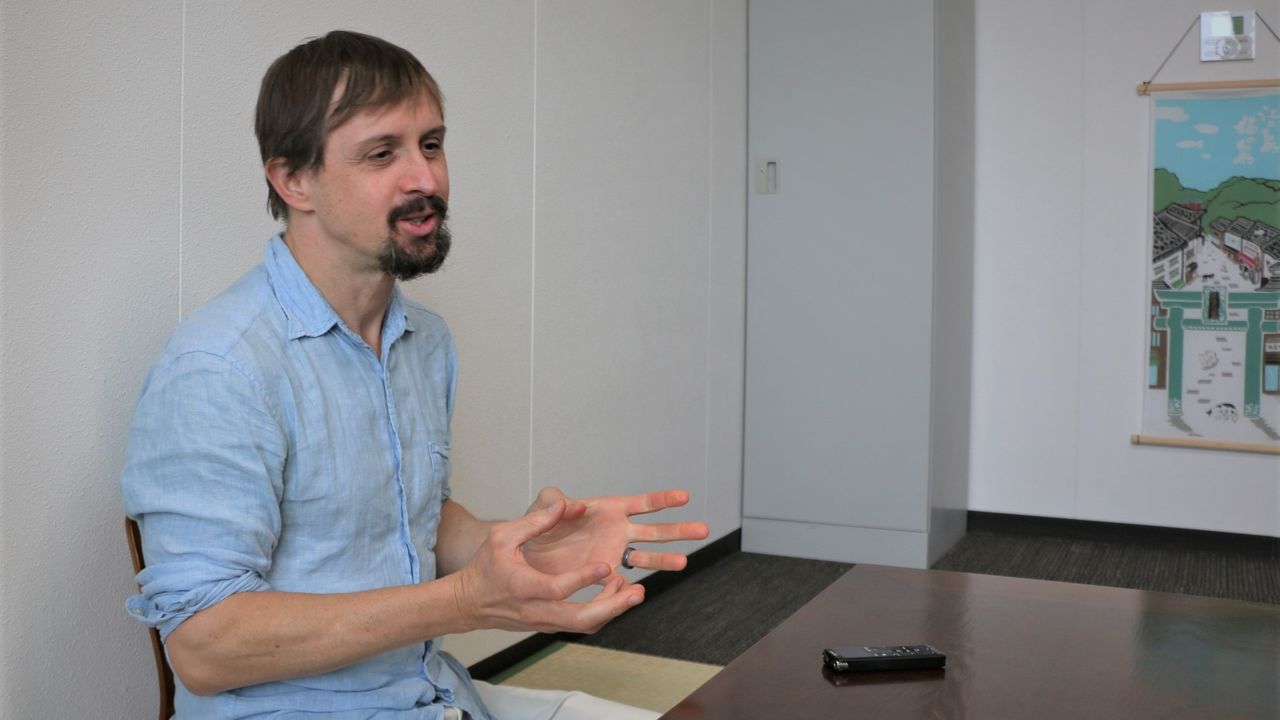
At UH Mānoa, Prof Brooks majored in English, with the nudging of his advisors who thought he would have better chances of employment, rather than graduating with a degree in Classical studies and Latin. He went on to teach English at colleges and private schools in Hawaiʻi. However, in contrast to his views in high school, he wanted to continue his education, and managed to obtain a scholarship with Rotary International to study Medieval British Studies in Wales at Cardiff University.
He really enjoyed this interdisciplinary degree that involved archeology, history, and linguistics, as well as English language and literature. This experience informed the trajectory of his research: the increasing realization that everything is interconnected.
After each degree, Prof Brooks took time off to work, teaching English in Hawaiʻi. However, he knew that he would need his Ph.D. eventually and that he wanted to be near where all the things he read about took place, particularly to read the manuscripts in person. He continued his education at Oxford University. There he spent most of his Ph.D. working in the 15th-century Duke Humfrey’s Library, a location used in the Harry Potter film series as the Hogwarts Library. He also taught classes about Tolkien and CS Lewis at Oxford and even befriended people who had known them personally.
“I had only seen medieval manuscripts as facsimiles that had been photocopied 40 times. But to be able to see them in color was incredible—and the scholars at Oxford are very grounded in the physicality of manuscripts. During my Masters’ at Oxford, we spent a lot of time studying the production of manuscripts, like how they made the books, tanned the hides, what the ingredients were to make the ink, and learning about that was very helpful to understand the world that we were studying. That was an amazing time, but it was very difficult!”
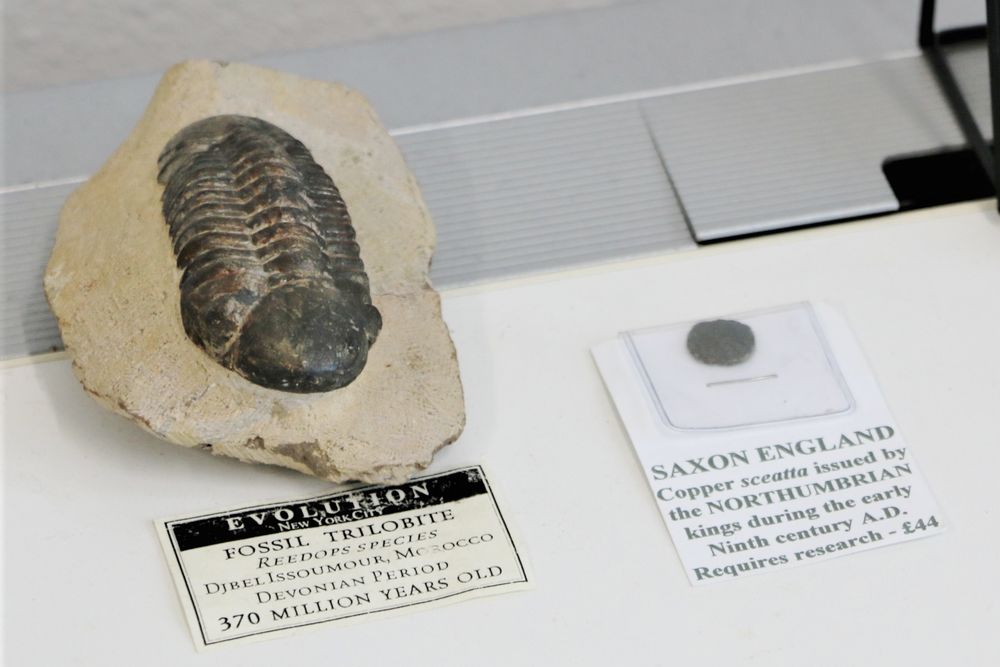
Much of Prof Brooks’ research consists of going back to the UK to consult the actual manuscripts. This is because there was no printing press in the medieval world, instead a text would be copied by a scribe or collection of scribes. This copy would then sometimes be sent elsewhere to be copied again. Each time little errors could creep in, sections lost, so that each manuscript version of a text can be very different. What we usually have in printed editions are compilations by modern editors that often remove these differences. The original manuscripts, therefore, can tell us a lot about the peoples, places, and literary traditions connected to it.
“Now there is a lot of effort being put into digitizing early manuscripts, which is great because scholars from institutions that are not as well funded, and young scholars, will have access to these manuscripts. When I was an undergrad, it was literally a black-and-white photocopy from a book. Now you can zoom in on your laptop and study the individual strokes of letters. I am excited for the scholars being trained with all these digital tools. There is still, however, no replacing actually sitting there with a manuscript that is nearly 1,000 years old. Feeling that history with all your senses.”
With his visa up for renewal, Prof Brooks decided to go home to Hawaiʻi after the birth of his first son, Aidan, to be able to spend time with family because travel between England and Hawaiʻi was inconvenient. After a few years lecturing at UH Mānoa, Prof Brooks managed to get a position at the University of Tokyo. He chose the job in great part due to his fascination with Japan, as much of local culture in Hawaiʻi has its roots in Japan. Living in Japan also made visiting family in Hawaiʻi more convenient.
One might never think that Japan is full of Medieval English scholars, but it is! Many English departments in the major universities in Japan have a specialist in Old English and/or Middle English to teach the history of the English language. In Hawaiʻi, there were only two specialist scholars in the state. When Prof Brooks was at the University of Tokyo, he was able to gather with his fellow medieval English academics at the Aldgate pub in Shibuya to discuss their interests over a pint, some of whom he had been acquainted with since his graduate school days at Oxford.
JSPS Kakenhi Grant and medieval soundscapes
Prof Brooks received a JSPS grant for a project on early medieval soundscapes. The project was intended to include visits to the UK, both to examine manuscripts in various archives and to do some original field recordings connected to those manuscripts. COVID warranted some changes to his plans.
“I wanted to know how early medieval people conceptualized sound and used it in their literature. While culture can change the ways in which we use language to understand our sensory world, our sensory input is predominantly visual, as we are, by virtue of our neurology and biology, primarily visual creatures. If you read Western literature, it is mostly concerned with colors and how everything looks.
“What people thought about the senses also influences how they describe them in literature. How, then, did medieval people theorize hearing? A lot of our texts were written by highly educated people who were trained in church doctrine, and the way they wrote is also therefore heavily influenced by the church.
“Part of the difficulty of this research, then, is trying to parse out the different strains. Were they simply repeating a part of the text they had read in a source like Virgil or St Augustine? Or were they trying to describe something that they heard themselves? So, you have to wonder how well the descriptions are connected to actual experiences.”
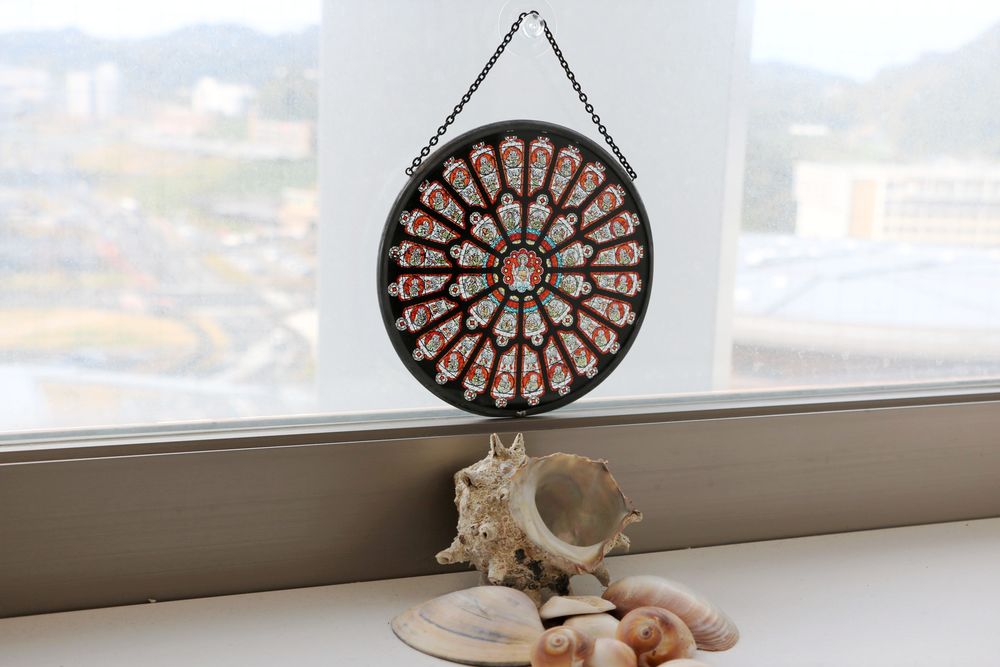
The soundscapes project has its origin in Prof Brooks’ observation of students spending most of their time walking around campus with headphones on. He was struck by how their daily soundscape was curated rather than natural, and how these curated soundscapes were not made by the students’ choices alone, but in connection with algorithms in programs like YouTube or Spotify. He wondered about what kind of disconnect this created with the non-human world.
He started to give an aural quiz where students had to guess the identity of something based on only its sound. The students were very good with artificial sounds like airplanes and computers turning on, but very few could identity a specific bird from just its call. This led him to consider the relationship between soundscapes and people in the medieval period.
“One good question from all this is how does sound construct knowledge of the world? In a lot of languages, the names of birds are onomatopoeic. They are named how they sound. Depending on where you live, you often hear various birds, but you might not see them. Crow, in English, for example, comes from the sound it makes: ‘caw or kraa!’
“There are a lot of bird names in Old English that scholars think are based on the sounds they make. This is interesting because it can show us the way that medieval peoples thought these animals sounded. There is, however, the chronological problem that we can’t necessarily tell whether or not a crow sounded like that or if they sound the same now, or if there was a shift in the way that the crows would have vocalized since then. Some scholars think that there are, and this type of study is doomed, because you can’t really equate the sounds of animals through time.
“For whales, it is very clear, we can track where a call starts and see the manner in which it is shared across the world. Whales have culture, and they share songs. Therefore, whale calls and songs from a hundred years ago might have sounded quite different. Crows are also very intelligent, but there is no evidence I know of that their vocalizations can change drastically. When you hear a crow now, they still sound like the Old English word for crow: crawe. It seems aurally similar enough to say they mostly sounded kind of the same. What we think it means is different. That’s the basics of the JSPS project.”
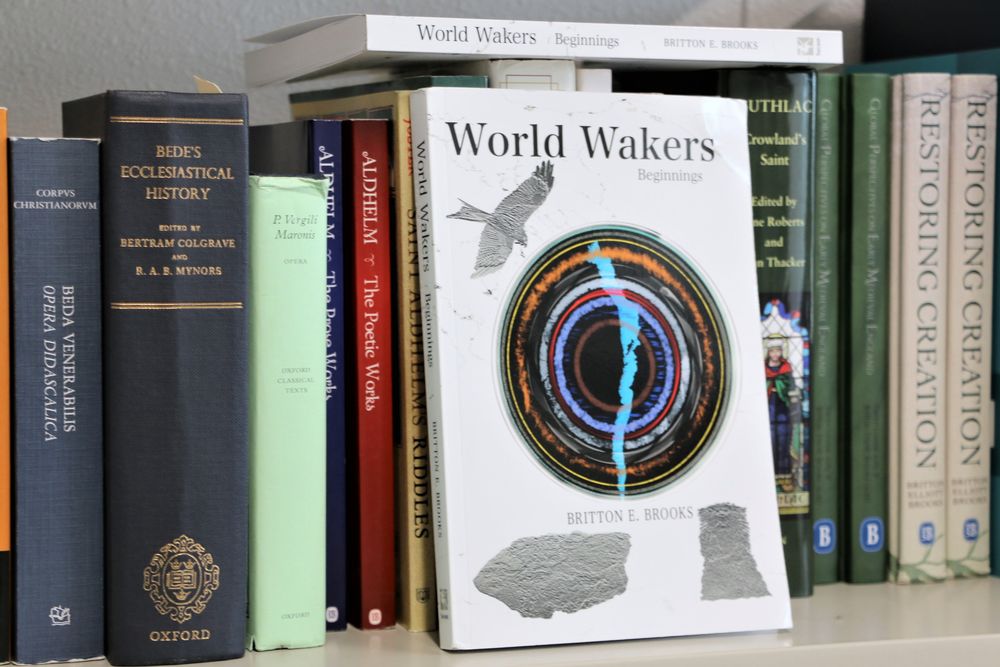
Reaching a wider audience
Aside from traditional academic works like journal papers and symposiums, Prof Brooks is also pursuing new outlets to bring his thoughts and work on interconnectedness to a wider audience.
Prof Brooks’ first novel, World Wakers, began with a camping trip with his wife, Michelle, near Lake Windermere in England. By flashlight in their tent, he scribbled down notes and ideas that would develop over the years into what he hopes is an exciting story.
“I’m interested in how humans and the non-human or natural world interact, even though these are not distinct categories. The novel in a lot of ways explores the relationship between people and entities like an otter, or even a stone. While it starts in the Lake District, and includes characters from Oxford, it eventually makes it way into a quasi-mythological world with roots in the early medieval world.”
The story follows two main human characters, Michael, who is half-Hawaiian and half-English, and Heather, who is half-Japanese and half-Scottish.
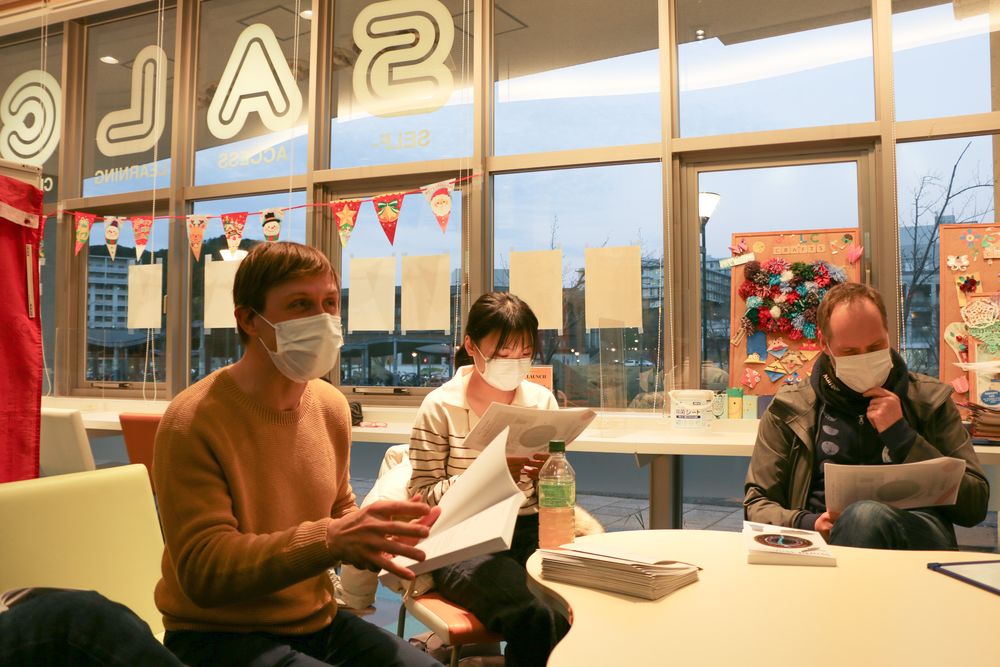
“In terms of human characters, I’m interested in people who straddle cultures and are not necessarily at home anywhere. Partly because that relates to my life experiences. I find that in contemporary discussions and creative works about culture, race, gender, and even non-human agency, what gets overlooked a lot are people whose feet are in multiple worlds.
“The characters are both the products of multiple worlds: Michael grew up in Hawaiʻi, and then moved to Oxford, where he sticks out because of his physical features and speech (darker skin, Hawaiian Creole English language use); Heather grew up in Scotland where her features and Japanese-inflected English likewise stood out. The book explores how these characters, in some ways, are place-less, in that they don’t really belong anywhere. And how, in connection with this, they are able to bring to consciousness elements of the non-human world. In this way, it’s also a story that tries to lend voice to the non-human world.
“My scholarly work and creative work cross-pollinate each other. My next project is a video game called Knowing Oceans. I grew up playing video games and wanted to create a series called 120-minute fiction. I wanted these to be compelling and interesting narratives that you could play through a couple of times, in which different choices lead to different endings. Knowing Oceans follows Subject 125, a hapa (mixed) Hawaiian graduate student in late 1980s Japan, as she takes part in an experiment. During the experiment, she progressively is given the ability to perceive the world through the senses of a particular sea creature. The game explores her connections to the sea, and how the human mind would deal with experiencing it through the sensory faculties of a different creature, because animals have a wonderful array of sensory abilities. I am hoping to have it published in the first part of next year.”
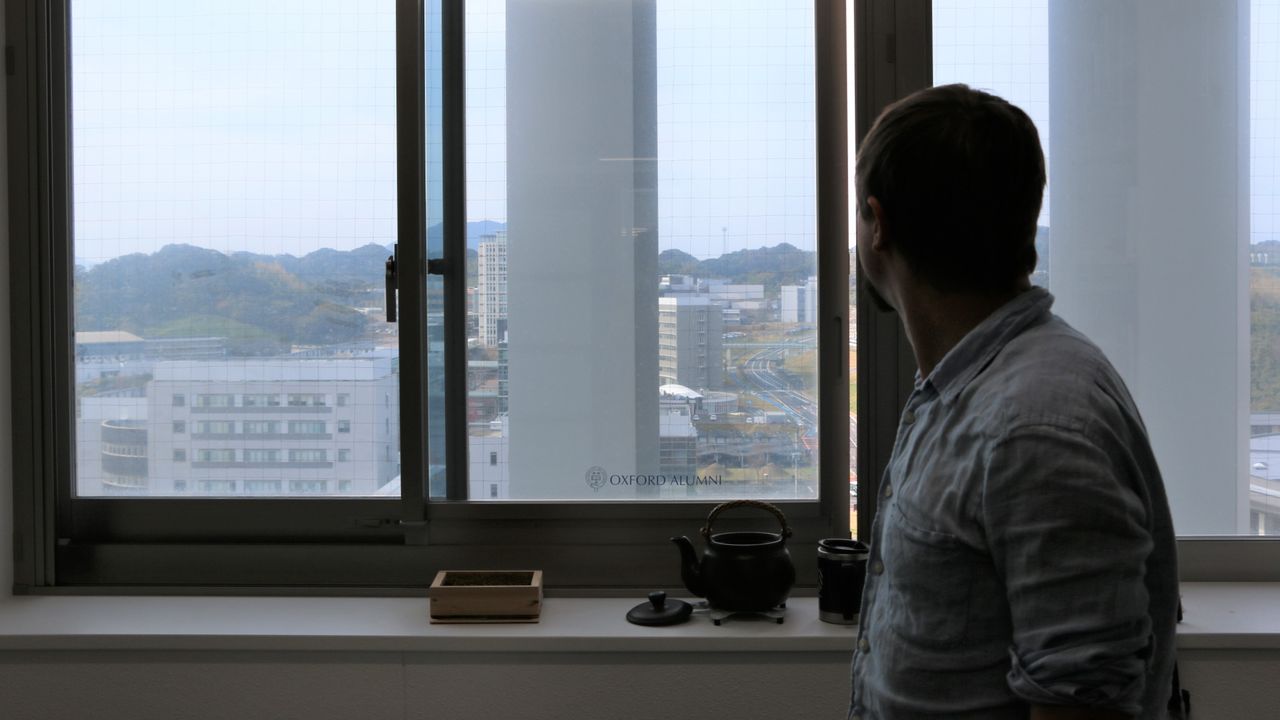
For more information on Prof Brooks, visit his webpage.































